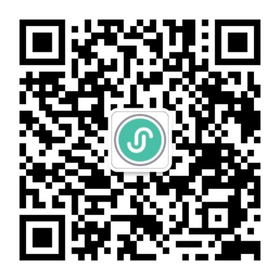
雅思口语part1话题:E-mail
“电子邮件”是雅思口语part1话题中经常出现的话题。电子邮件在数字时代改变了人们的沟通方式,成为连接全球人民的重要工具。它改变了我们的互动方式,弥合了距离,使个人能够即时交换信息。
在雅思口语part1部分,考生将被问及与他们对电子邮件的使用经验和观点相关的问题。这为考生展示语言能力的机会,同时分享他们对电子邮件在日常生活中的作用和影响的见解。
“电子邮件”话题鼓励考生讨论他们使用电子邮件的各种目的,比如个人交流、职业互动或学术活动。它促使考生探讨电子邮件的优点和挑战,以及他们在撰写邮件时遵循的礼仪。
为了备考这个话题,考生可以:
- 熟悉电子邮件的基本概念和功能。
- 思考自己使用电子邮件的目的和频率。
- 探索电子邮件在个人生活、学习和职业等不同领域的应用。
- 学习与电子邮件相关的词汇和表达方式,如写电子邮件的礼节和格式。
- 思考电子邮件的优势和挑战,如方便快捷但也容易被垃圾邮件等问题干扰。
通过与朋友或学习伙伴练习回答示例问题,并积极参与对电子邮件的讨论,考生可以提高自己的流利度和自信心。在回答问题时,考生应努力运用适当的语法、词汇和句式,以及清晰的发音。通过分享个人经历、观点和观察,使回答更具吸引力和说服力。
以下是关于"E-mail"(电子邮件)话题的一些雅思口语问题和示例回答:
雅思口语part1话题:E-mail语料
1. Personal Use of E-mail:
Begin by discussing your personal use of e-mail and how frequently you use it for communication.
Example: "I use e-mail regularly for both personal and professional communication, and it has become an essential tool in my daily life."
2. Importance of E-mail:
Talk about the significance of e-mail as a means of communication in the digital age.
Example: "E-mail is crucial for me as it allows me to stay connected with friends, family, and colleagues, no matter the distance."
3. Types of E-mails Sent:
Discuss the different types of e-mails you send, such as casual messages, formal communications, or business-related e-mails.
Example: "I send various types of e-mails, from quick catch-up messages to more formal e-mails for work-related matters."
4. Advantages of E-mail:
Talk about the advantages of using e-mail, such as convenience, instant delivery, and the ability to send attachments.
Example: "One of the main advantages of e-mail is its speed; I can send and receive messages instantly, along with attachments like documents or photos."
5. E-mail vs. Other Communication Methods:
Compare e-mail to other communication methods like phone calls or social media messaging.
Example: "E-mail offers a more formal and organized way of communication compared to quick messages on social media platforms."
6. E-mail Etiquette:
Discuss the importance of e-mail etiquette and any rules you follow when composing e-mails.
Example: "I always ensure to use a polite tone, proper greetings, and concise language when writing e-mails, especially in a professional context."
7. Managing E-mail Inbox:
Talk about how you manage your e-mail inbox, such as organizing messages or unsubscribing from newsletters.
Example: "To keep my inbox organized, I create folders for different categories and regularly clean up unnecessary messages."
8. E-mail Security:
Discuss any measures you take to ensure the security of your e-mail account.
Example: "I regularly update my password and avoid clicking on suspicious links or opening attachments from unknown sources to protect my e-mail from potential threats."
9. Formal E-mails:
Talk about any experiences you've had with writing formal e-mails, such as job applications or inquiries.
Example: "Writing formal e-mails can be challenging, but I have experience composing cover letters for job applications."
10. E-mail and Work/School:
Discuss how e-mail is used in your work or school environment for communication and assignments.
Example: "In my workplace, e-mail is the primary mode of communication for sharing important updates and coordinating team projects."
11. E-mail and International Communication:
Talk about how e-mail facilitates communication with people from different countries.
Example: "E-mail has made it incredibly convenient to communicate with friends and colleagues from around the world, overcoming time zone differences."
12. E-mail Attachments and Documents:
Discuss the convenience of sending and receiving attachments, such as documents or photos, through e-mail.
Example: "E-mail allows me to share important documents or photos with ease, saving time and effort compared to traditional mail."
13. E-mail and Privacy Concerns:
Talk about any concerns you may have regarding privacy when using e-mail.
Example: "While e-mail is convenient, I am mindful of the need to protect sensitive information and avoid sharing personal details in unsecured e-mails."
14. E-mail Filters and Spam:
Discuss how you manage spam and unwanted e-mails using filters or other tools.
Example: "To avoid clutter in my inbox, I use spam filters to automatically sort out irrelevant e-mails and keep my inbox organized."
15. Personalizing E-mails:
Talk about the importance of personalizing e-mails based on the recipient and context.
Example: "I believe that personalizing e-mails with the recipient's name and relevant information shows thoughtfulness and consideration."
16. E-mail and Urgent Communications:
Discuss how you handle urgent communications through e-mail.
Example: "For urgent matters, I prefer using phone calls or instant messaging as e-mails may not be immediately checked."
17. E-mail for Long-distance Relationships:
Talk about how e-mail can be beneficial for maintaining long-distance relationships.
Example: "E-mail is a lifeline for me to stay connected with friends or family living in different countries, making our relationships stronger."
18. E-mail in Academic Settings:
Discuss the role of e-mail in academic settings, such as communicating with professors or classmates.
Example: "In university, e-mail is commonly used for submitting assignments, asking questions, and receiving course updates."
19. E-mail as a Record Keeping Tool:
Talk about how e-mail serves as a useful tool for keeping records of important conversations.
Example: "E-mails help me keep track of important discussions and agreements in both personal and professional matters."
20. Future of E-mail:
Discuss any predictions or expectations you have regarding the future of e-mail as a communication medium.
Example: "With the continuous evolution of technology, I anticipate that e-mail will continue to adapt and remain a fundamental means of communication."
雅思口语part1话题:E-mail中文思路
你经常使用电子邮件吗? 是的,我经常使用电子邮件。在现代社会,电子邮件已成为一种常见的沟通工具,我经常用它与朋友、家人和同事保持联系。
你通常用电子邮件做什么? 我通常使用电子邮件来发送和接收文件、交流工作事务,还有与朋友和家人分享最新的消息和照片。
你有多久没有给别人写邮件了? 最近几天我没有写邮件给别人了,但是我经常与他们保持联系,只是使用其他的沟通方式,比如社交媒体或即时通讯应用程序。
你喜欢收到电子邮件还是纸质信件? 我更喜欢收到电子邮件。它们方便快捷,可以随时查看和回复。纸质信件需要时间邮寄和传递,而且容易丢失。
你有没有收到过一封特别的电子邮件? 是的,我曾经收到过一封特别的电子邮件。它是一封长期未联系的老朋友写给我的,在邮件中分享了他的近况和想念我们的时光。
你认为电子邮件对你的生活有什么影响? 电子邮件对我的生活影响很大。它使得与他人保持联系更加便捷,而且在工作中也起到了重要的沟通作用。我可以随时发送和接收重要的文件和信息。
以上问题可以作为参考,但在实际考试中,可能会有不同的问题出现。要准备好针对不同问题的回答,积累一些与电子邮件相关的词汇和表达方式。此外,注意流利地表达自己的观点和意见,并且使用恰当的语法和词汇来增强回答的效果。多进行一些口语练习,提高自己的回答能力,具备应对考试的自信。







